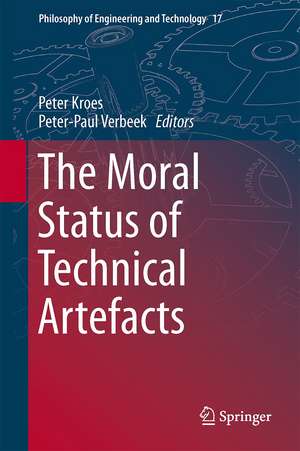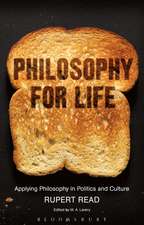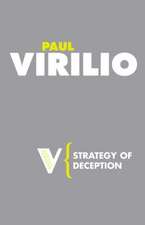The Moral Status of Technical Artefacts: Philosophy of Engineering and Technology, cartea 17
Editat de Peter Kroes, Peter-Paul Verbeeken Limba Engleză Hardback – 21 ian 2014
The editors’ introduction explains that as ‘agents’ rather than simply passive instruments, technical artefacts may actively influence their users, changing the way they perceive the world, the way they act in the world and the way they interact with each other.
This volume features the work of various experts from around the world, representing a variety of positions on the topic. Contributions explore the contested discourse on agency in humans and artefacts, defend the Value Neutrality Thesis by arguing that technological artefacts do not contain, have or exhibit values, or argue that moral agency involves both human andnon-human elements.
The book also investigates technological fields that are subject to negative moral valuations due to the harmful effects of some of their products. It includes an analysis of some difficulties arising in Artificial Intelligence and an exploration of values in Chemistry and in Engineering. The Moral Status of Technical Artefacts is an advanced exploration of the various dimensions of the relations between technology and morality
| Toate formatele și edițiile | Preț | Express |
|---|---|---|
| Paperback (1) | 638.43 lei 6-8 săpt. | |
| SPRINGER NETHERLANDS – 17 sep 2016 | 638.43 lei 6-8 săpt. | |
| Hardback (1) | 644.63 lei 6-8 săpt. | |
| SPRINGER NETHERLANDS – 21 ian 2014 | 644.63 lei 6-8 săpt. |
Din seria Philosophy of Engineering and Technology
- 9%
 Preț: 627.11 lei
Preț: 627.11 lei -
 Preț: 378.64 lei
Preț: 378.64 lei - 15%
 Preț: 662.95 lei
Preț: 662.95 lei -
 Preț: 280.88 lei
Preț: 280.88 lei - 20%
 Preț: 551.31 lei
Preț: 551.31 lei - 15%
 Preț: 646.75 lei
Preț: 646.75 lei - 24%
 Preț: 806.73 lei
Preț: 806.73 lei - 18%
 Preț: 1110.86 lei
Preț: 1110.86 lei -
 Preț: 392.97 lei
Preț: 392.97 lei - 18%
 Preț: 958.07 lei
Preț: 958.07 lei - 15%
 Preț: 645.28 lei
Preț: 645.28 lei -
 Preț: 394.12 lei
Preț: 394.12 lei -
 Preț: 393.52 lei
Preț: 393.52 lei - 15%
 Preț: 638.90 lei
Preț: 638.90 lei - 15%
 Preț: 660.04 lei
Preț: 660.04 lei - 15%
 Preț: 654.43 lei
Preț: 654.43 lei - 15%
 Preț: 646.43 lei
Preț: 646.43 lei - 18%
 Preț: 788.90 lei
Preț: 788.90 lei - 15%
 Preț: 646.75 lei
Preț: 646.75 lei -
 Preț: 370.49 lei
Preț: 370.49 lei -
 Preț: 387.78 lei
Preț: 387.78 lei - 18%
 Preț: 735.07 lei
Preț: 735.07 lei - 18%
 Preț: 956.18 lei
Preț: 956.18 lei - 15%
 Preț: 637.59 lei
Preț: 637.59 lei - 18%
 Preț: 1009.40 lei
Preț: 1009.40 lei - 18%
 Preț: 787.91 lei
Preț: 787.91 lei - 15%
 Preț: 638.89 lei
Preț: 638.89 lei - 20%
 Preț: 566.75 lei
Preț: 566.75 lei - 18%
 Preț: 725.43 lei
Preț: 725.43 lei
Preț: 644.63 lei
Preț vechi: 758.38 lei
-15% Nou
Puncte Express: 967
Preț estimativ în valută:
123.35€ • 129.13$ • 102.06£
123.35€ • 129.13$ • 102.06£
Carte tipărită la comandă
Livrare economică 05-19 aprilie
Preluare comenzi: 021 569.72.76
Specificații
ISBN-13: 9789400779136
ISBN-10: 9400779135
Pagini: 256
Ilustrații: VI, 248 p. 4 illus.
Dimensiuni: 155 x 235 x 19 mm
Greutate: 0.54 kg
Ediția:2014
Editura: SPRINGER NETHERLANDS
Colecția Springer
Seria Philosophy of Engineering and Technology
Locul publicării:Dordrecht, Netherlands
ISBN-10: 9400779135
Pagini: 256
Ilustrații: VI, 248 p. 4 illus.
Dimensiuni: 155 x 235 x 19 mm
Greutate: 0.54 kg
Ediția:2014
Editura: SPRINGER NETHERLANDS
Colecția Springer
Seria Philosophy of Engineering and Technology
Locul publicării:Dordrecht, Netherlands
Public țintă
ResearchCuprins
Introduction: the moral status of technical artefacts; Peter Kroes and Peter-Paul Verbeek.- Chapter 1. Agency in Humans and in Artifacts: A Contested Discourse; Carl Mitcham.- Chapter 2. Towards a post-human intra-actional account of sociomaterial agency (and Morality); Lucas Introna.- Chapter 3. Which came first, the doer or the deed?; Allan Hanson.- Chapter 4. Some misunderstandings about the moral significance of technology; Peter-Paul Verbeek.- Chapter 5. “Guns don’t kill, people kill”; values in and/or around technologies; Joe Pitt.-Chapter 6. Can technology embody values?; Ibo van de Poel and Peter Kroes.- Chapter 7. From moral agents to moral factors: the structural ethics approach; Philip Brey.- Chapter 8. Artefactual agency and artefactual moral agency; Deborah G. Johnson and Merel Noorman.- Chapter 9. Artefacts, agency, and action schemes; Christian Illies and Anthonie Meijers.- Chapter 10. Artificial agents and their moral nature; Luciano Floridi.- Chapter 11. The good, the bad, the ugly and the poor: instrumental and non- instrumental values of artefacts; Maarten Franssen.- Chapter 12. Values in Chemistry and Engineering; Sven Ove Hansson.
Recenzii
From the book reviews:
“The Moral Status of Technical Artefacts is a 13 chapter book discussing the morality of technology. … it is an important book, for it gives insight as to the role of what we as engineers produce and how that is used, in a moral sense, by our customers. Highly recommended.” (Richard J. Peppin, Noise Control Engineering Journal, Vol. 62 (4), July-August, 2014)
“The Moral Status of Technical Artefacts is a 13 chapter book discussing the morality of technology. … it is an important book, for it gives insight as to the role of what we as engineers produce and how that is used, in a moral sense, by our customers. Highly recommended.” (Richard J. Peppin, Noise Control Engineering Journal, Vol. 62 (4), July-August, 2014)
Textul de pe ultima copertă
This book considers the question: to what extent does it make sense to qualify technical artefacts as moral entities? The authors’ contributions trace recent proposals and topics including instrumental and non-instrumental values of artefacts, agency and artefactual agency, values in and around technologies, and the moral significance of technology.
The editors’ introduction explains that as ‘agents’ rather than simply passive instruments, technical artefacts may actively influence their users, changing the way they perceive the world, the way they act in the world and the way they interact with each other.
This volume features the work of various experts from around the world, representing a variety of positions on the topic. Contributions explore the contested discourse on agency in humans and artefacts, defend the Value Neutrality Thesis by arguing that technological artefacts do not contain, have or exhibit values, or argue that moral agency involves both human and non-human elements.
The book also investigates technological fields that are subject to negative moral valuations due to the harmful effects of some of their products. It includes an analysis of some difficulties arising in Artificial Intelligence and an exploration of values in Chemistry and in Engineering. The Moral Status of Technical Artefacts is an advanced exploration of the various dimensions of the relations between technology and morality.
The editors’ introduction explains that as ‘agents’ rather than simply passive instruments, technical artefacts may actively influence their users, changing the way they perceive the world, the way they act in the world and the way they interact with each other.
This volume features the work of various experts from around the world, representing a variety of positions on the topic. Contributions explore the contested discourse on agency in humans and artefacts, defend the Value Neutrality Thesis by arguing that technological artefacts do not contain, have or exhibit values, or argue that moral agency involves both human and non-human elements.
The book also investigates technological fields that are subject to negative moral valuations due to the harmful effects of some of their products. It includes an analysis of some difficulties arising in Artificial Intelligence and an exploration of values in Chemistry and in Engineering. The Moral Status of Technical Artefacts is an advanced exploration of the various dimensions of the relations between technology and morality.
Caracteristici
Traces recent proposals that ascribe some form of moral agency to technology and technical artefacts Contains a plethora of arguments and counterarguments on the moral status of technology and technical artefacts Presents work that connects with many sub-disciplines of philosophy, and with disciplines beyond philosophy

















